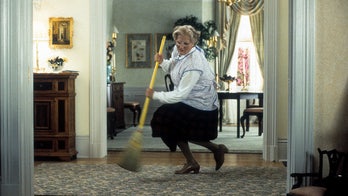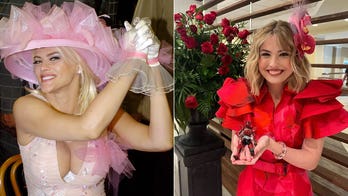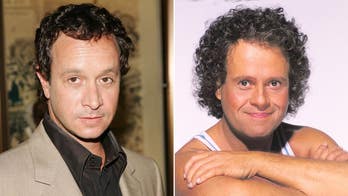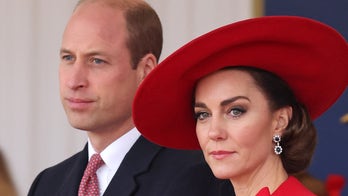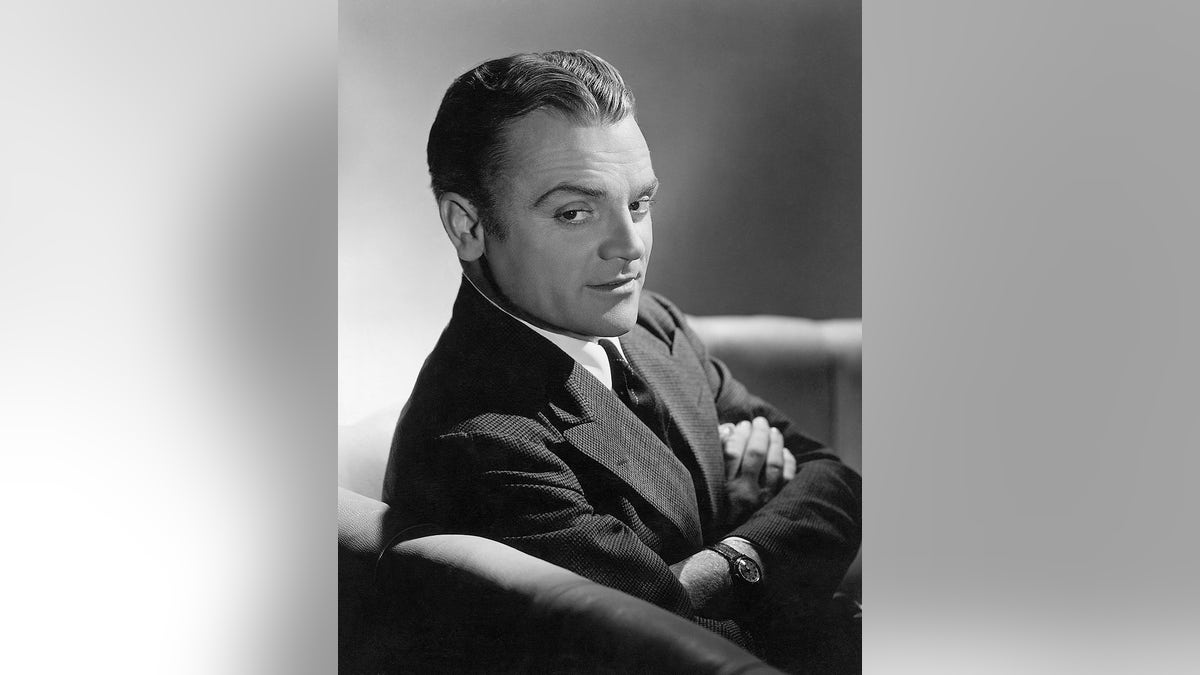
Close-up of actor James Cagney sitting on a sofa with his arms folded across his chest. (Getty)
James Cagney is still celebrated as America’s favorite movie gangster from Hollywood’s golden era — but the on-screen bad boy preferred living a quiet life on the countryside when cameras stopped rolling.
The actor died in 1986 at age 86 in his Stanfordville farm in New York, a place he called home for 31 years, The New York Times reported.
David Fantle and Tom Johnson, two longtime close friends from Minnesota, recently co-wrote “Hollywood Heydey,” which features 75 interviews they conducted with golden age legends.
The pair first began traveling to Los Angeles from St. Paul in 1975 as teenagers to meet with their screen idols, including Fred Astaire, Lucille Ball, Bob Hope and others.
Cagney was one of their many subjects during the summer of 1978. His last credited role was for the 1984 TV movie “Terrible Joe Moran.”
VINTAGE HOLLYWOOD FLASHBACK: THE GOLDEN GLOBES IN THE '50S, '60S AND '70S
Fantle told Fox News that despite Cagney’s fame and notoriety, he never forgot his roots and preferred living as far away from Hollywood as possible when he could.
“Of course, he went to Hollywood for his film career, but he was really a gentleman farmer who spent most of his time with his wife Billie in Stanfordville, N.Y., on the Hudson River Valley or in Martha’s Vineyard,” he explained.
Cagney was born on the Lower East Side of Manhattan, in New York City, in 1899.
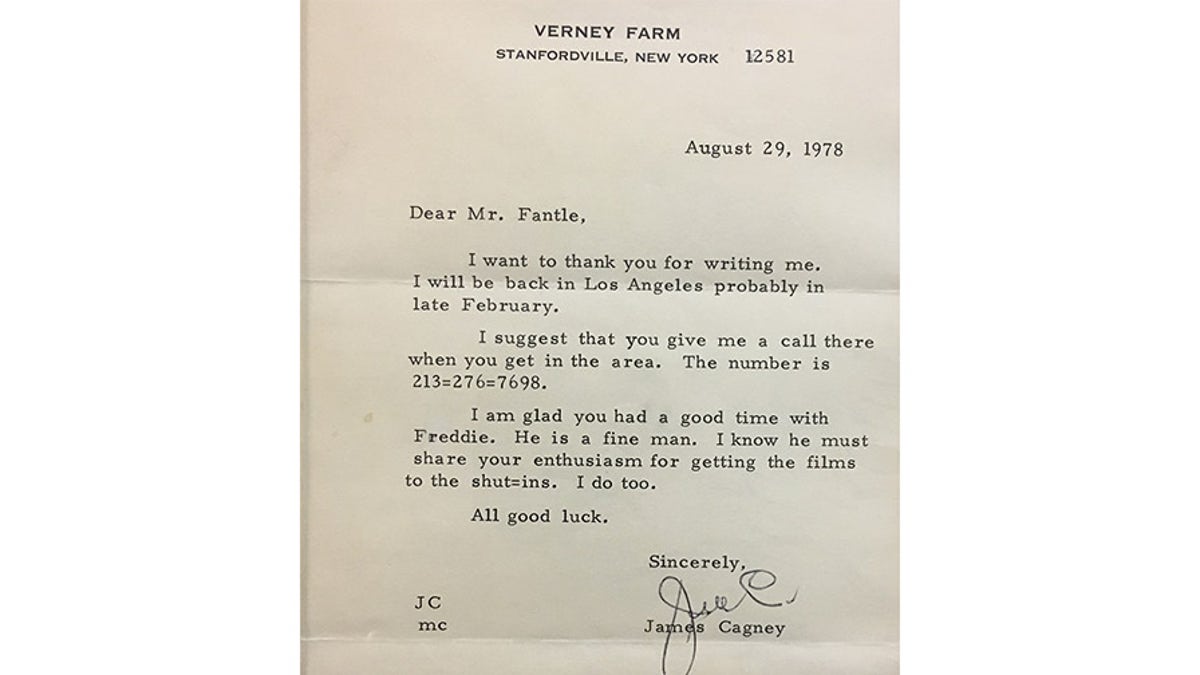
A letter James Cagney wrote to David Fantle after he interviewed "Freddie" or Fred Astaire. (Courtesy of David Fantle)
“The only reason he would go back to Los Angeles was because his wife was a Midwesterner who wanted to get back to the West Coast during the winter months," he added. "That’s the only reason he went back to LA later in life.”
Despite Cagney being “very reclusive,” he agreed to an interview with the two eager students after they wrote the film icon a letter.
“We asked him when he would be in LA and he said, ‘I’ll be there in the winter months because my wife doesn’t like the cold weather,'” added Fantle.
And getting Cagney to Hollywood was no easy task. He never flew on planes, preferring to drive cross-country in his car.
Cagney revealed the long drives from his upstate farm to California and back only made him further love and appreciate his country, a lesson he shared with the two boys.
“He said the best way to learn about America and see the beauty of America is from eye level in a car,” explained Johnson. “So they would always drive coast to coast from their upstate New York farm or Martha’s Vineyard to their winter home in Coldwater Canyon. He loved driving across the country. Just loved it… It was the only time I’ve ever been in a Bentley!”
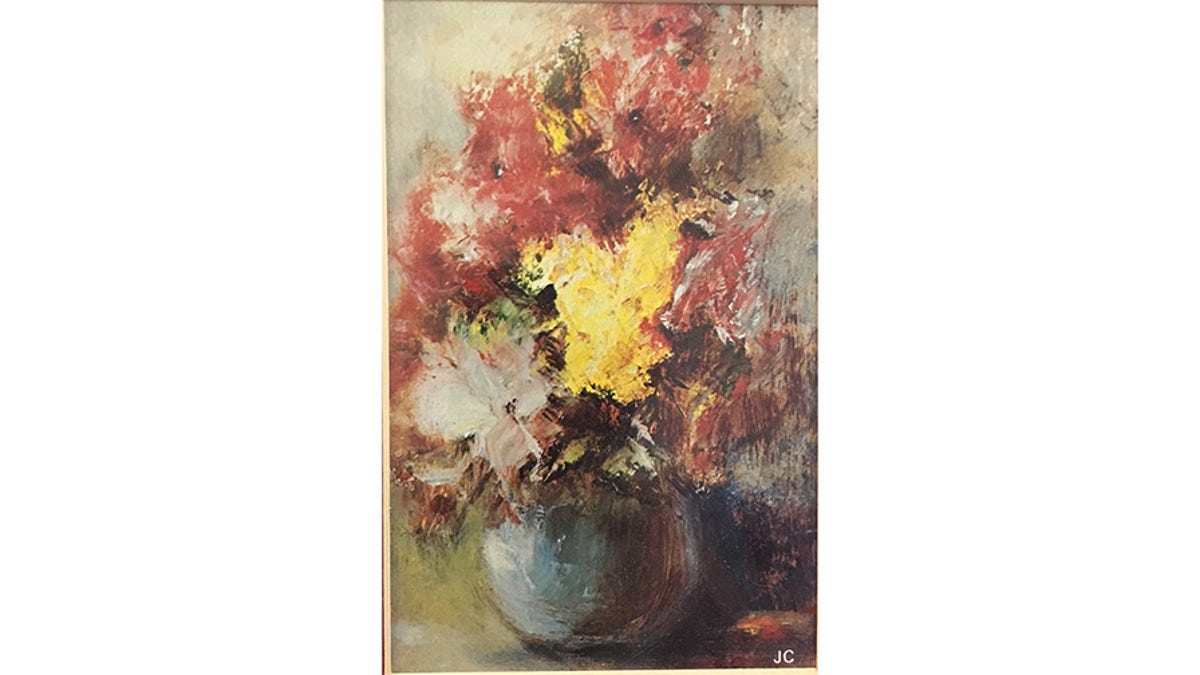
A still life painting by James Cagney. (Courtesy of David Fantle)
Cagney told them, “Farmers are the backbone of this country. We drive across America each fall from New York to Los Angeles because I love to see this country and you can’t see it from 28,000 feet in an airplane.”
Life was simpler on a farm for Cagney, and he wouldn’t have had it any other way. The Poughkeepsie Journal reported in 2015 the star relished painting the landscape from home, as well as visiting local restaurants with his wife.
When the couple felt at ease with those they encountered in town, the Cagneys would invite them to visit their home. The pair also frequented horse shows and flea markets. Cagney even hired off-duty officers to keep hunters from killing their animals on the land.
John Travolta, who idolized Cagney, called every Father’s Day and made several visits by flying his own plane. However, Cagney’s caregiver told the publication she made the actor stay at a motel during weekend visits to protect the couple’s privacy.
The New York Times added Cagney used his time outside of Hollywood pursuing his other passions, including writing, playing classical guitar and sailing.
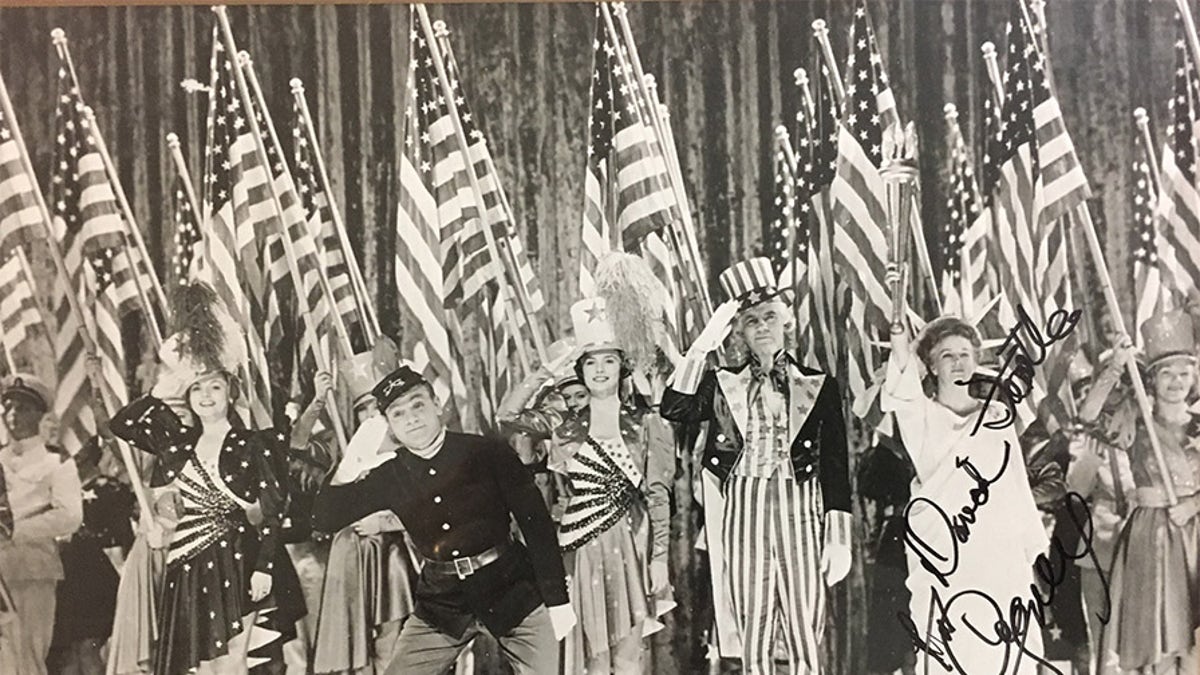
James Cagney in 1942's "Yankee Doodle Dandy." (Courtesy of David Fantle)
Johnson said that after meeting Cagney he fully understood why the screen legend yearned life on a farm despite his fame.
“He loved raising horses,” he said. “In fact, Robert Wagner told us that growing up in Hollywood, he used to run Cagney’s horses for him when he was a little kid. Cagney would hire him out to exercise the horses back in the ‘40s and ‘50s.
"And honestly, James was one of the most down to earth celebrities we’ve ever met. Completely unaffected by his own fame," Johnson added. "He was more into talking about the farm and the environment than about old gangster movies.”
Fantle insisted Cagney didn’t really love the tough guy roles that made him a star.
“He called gangster films hoodlum films,” said Fantle. “He said to us he never watched his hoodlum films. The only movies he would ever stick around to watch if they were on TV would be the handful of musicals he made, which he loved.”
When Fantle and Johnson met then-80-year-old Cagney, he was experiencing some health woes. Cagney had reportedly suffered from diabetes, strokes and a heart condition.
Shortly after their visit, he entered a hospital for treatment of sciatica. However, Cagney lit up to speak with the writers about his musical work, despite not having a great urge to perform in front of cameras.
One of the many memories the two writers continue to cherish was Cagney’s loving relationship with his wife of more than 60 years, Frances “Billie” Cagney.
The Los Angeles Times revealed the pair met when Frances was a chorus girl and he a performer in the 1920 New York musical “Pitter Patter.”
They were married from 1922 until his death. Frances remained on the couple’s farmhouse until her own death in 1994 at age 95.
“… Billie was a farm girl from Iowa that he met in New York as an aspiring entertainer,” said Fantle. “… She was so grounded. Middle of the country. And Cagney… was not a city kid at heart. He considered himself to be a country boy.”
Fantle hopes their book will reveal a new side to a star who famously embodied a movie genre that still thrives today in theaters.
“Cagney said that show business and films were for him strictly ‘to put bread on the table,’” said Fantle. “He was totally unaffected by the entertainment industry. There was no ego, no star complex… and it just worked.”


